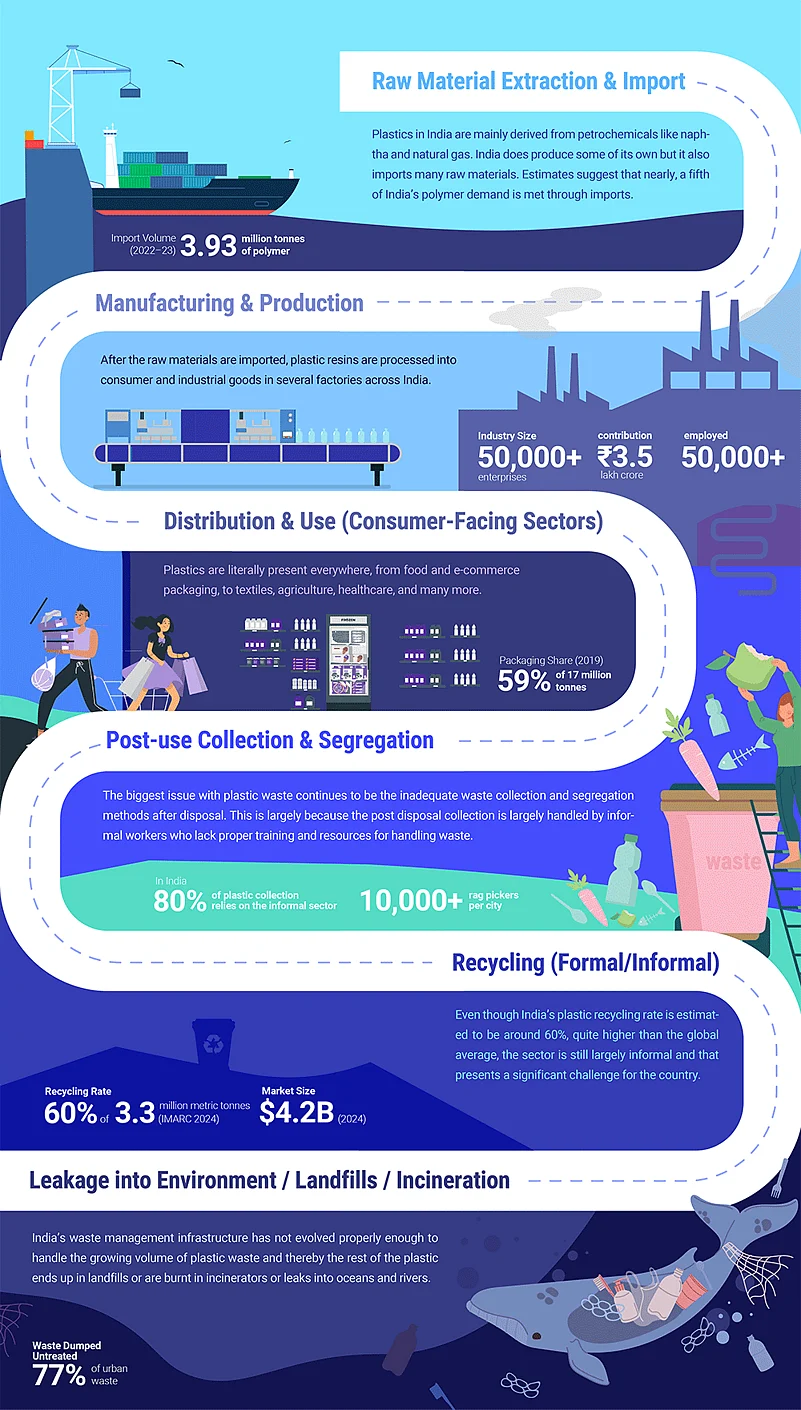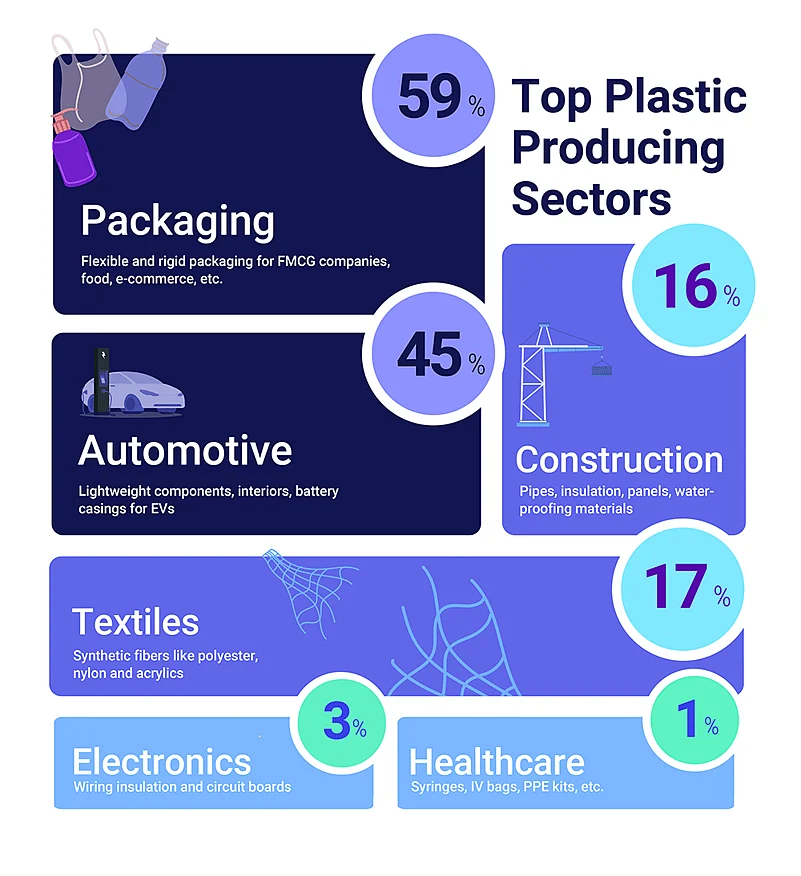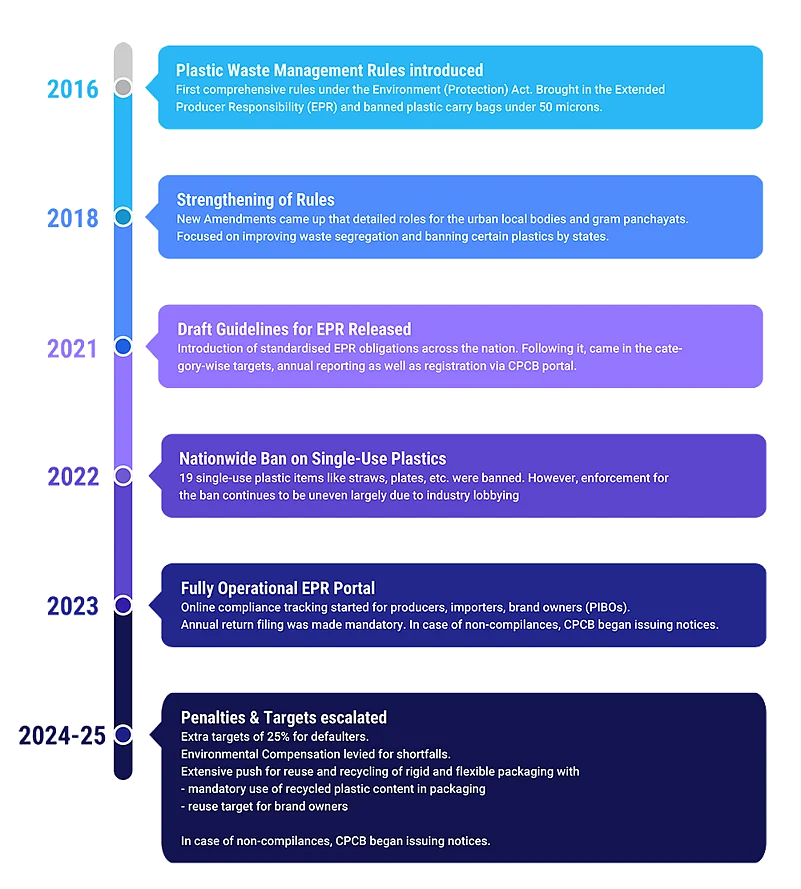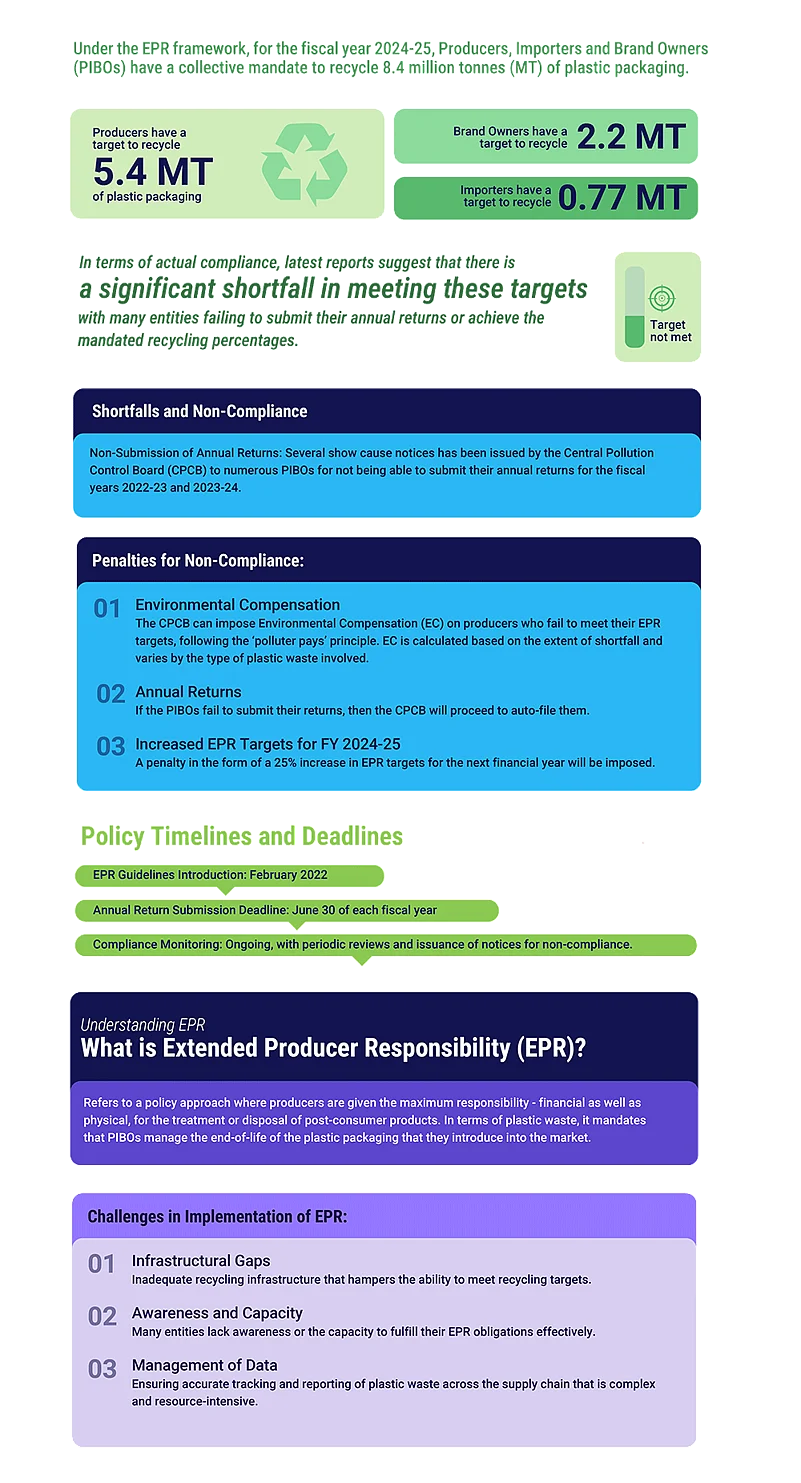As India witnesses a rise in plastic consumption mainly driven by rapid urbanization and increasing demand for e-commerce and packaging, the environmental consequences for the same is visibly surging. Industry estimates suggest that India's annual plastic consumption has more than doubled over the last decade and its per capita use is expected to rise significantly by 2030. As of 2021, India’s per capita plastic consumption stood at 15 kilograms per person in a year.

The environmental fallout of plastics is stark. Currently, the country generates about 9.3 million tones of plastic waste annually. A recent study has revealed that India has become the largest polluter of plastic waste globally, accounting for about 20% of the total global plastic waste. Among the huge figure of plastic waste generated, about 3.5 million tonnes are mismanaged and leak into the environment each year. Insufficient waste management systems and poor recycling infrastructure leads to only a fraction of this waste being effectively recycled.

Additionally, the economic costs of this is equally troubling, that includes clogged drainage systems as well as increasing municipal cleanup expenses that burden local governments and communities.

The theme of this year’s World Environment Day comes at a crucial time, especially for a country like India that has introduced policies like the ban on single-use plastics and the Plastic Waste Management Rules. Globally, there is rising pressure for nations to align with international climate goals and negotiate a binding plastics treaty under the United Nations’ framework.

As the climate crisis intensifies, addressing plastic pollution remains no longer optional. Additionally it is also necessary to understand that India’s plastic trajectory is vital to shaping policies that balance growth with sustainability."


























